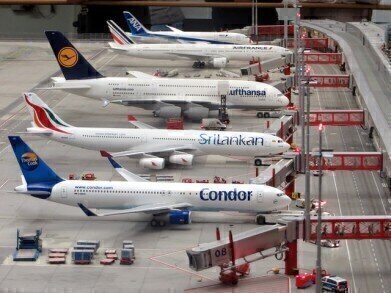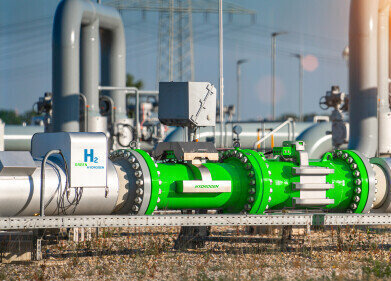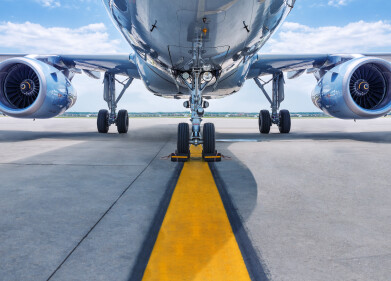Sustainable aviation fuel (SAF)
What is Sustainable Aviation Fuel (SAF)?
Aug 27 2021
From KLM to Delta, an increasing number of airlines are making the switch to Sustainable Aviation Fuel (SAF). Alongside new engine technologies, SAF has been identified as one of the most effective ways for the aviation sector to reduce emissions and minimise its environmental footprint.
Made from renewable sources and waste products such as cooking oil, food scraps and woody biomass, Sustainable Aviation Fuel has the capacity to slash total lifecycle emissions by up to 80% compared to regular jet fuel. It can also be blended with standard jet fuel at ratios of up to 50%. Known as Jet A or Jet A-1 blends, these fuels require no infrastructure or mechanical engine changes.
Shell and BP pave the way for SAF pathways
Shell is an early pioneer of SAF, partnering with a range of companies to manufacture and supply SAF, as well as develop new technology pathways to scale production and explore new feedstocks. Manufacturing synthetic kerosene using hydrogen and recycled carbon is one of the company’s latest breakthroughs, with the fuel developed at the Shell Technology Centre Amsterdam.
BP is another SAF advocate, recently collaborating with renowned renewable fuel producer Neste to develop new supply chains. The company also upholds a partnership with California-based company Fulcrum BioEnergy, which produces SAF from common household waste. Eventually, Fulcrum BioEnergy will supply BP with more than 50 million gallons of Sustainable Aviation Fuel per year.
The cost barriers of SAF
While SAF offers exciting environmental benefits, cost is a major barrier. This is due to sustainable feedstock supply chain issues, as well as the expenses associated with production technologies. Costs are expected to drop as the SAF industry continues to advance, ideally fuelling an uptake in Sustainable Aviation Fuels across the sector.
“The key to greater acceptance and deployment of SAF is reduction in costs. Over the long term, that will require investment in advanced technologies to process feedstocks more efficiently at greater scale and investment in the development of sustainable and scalable feedstock options,” says Andreea Moyes, global aviation sustainability director at specialised aviation division, Air BP. Government intervention and initiatives will also play an important role, with Moyes adding “However, in the short-term, interim support from governments and other stakeholders through policy incentives is needed. This support needs to be part of a long-term framework to give investors the confidence to make the big investments required to grow supply.”
Discover the latest SAF innovations
With passenger numbers expected to double to more than 8 billion by 2050, reducing carbon emissions and transitioning to Sustainable Aviation Fuels is front of mind. Find out more about the latest innovations from Dr. Raj Shah on behalf of Koehler Instrument Company in ‘Recent Advances in the Sustainable Aviation Industry.'
Digital Edition
PIN 26.1 Feb/Mar 2025
March 2025
Analytical Instrumentation - Elemental Analysis for Quality and Process Control at Refineries, for Lubricants and Wear Metals in Engine Oils - Synthetic Lubricants: New Developments - Scaling...
View all digital editions
Events
Apr 22 2025 Hammamet, Tunisia
Apr 22 2025 Kintex, South Korea
Solar & Energy Storage Summit 2025
Apr 23 2025 Denver, CO, USA
Apr 27 2025 Portland, OR, USA
Apr 29 2025 Mumbai, India



















